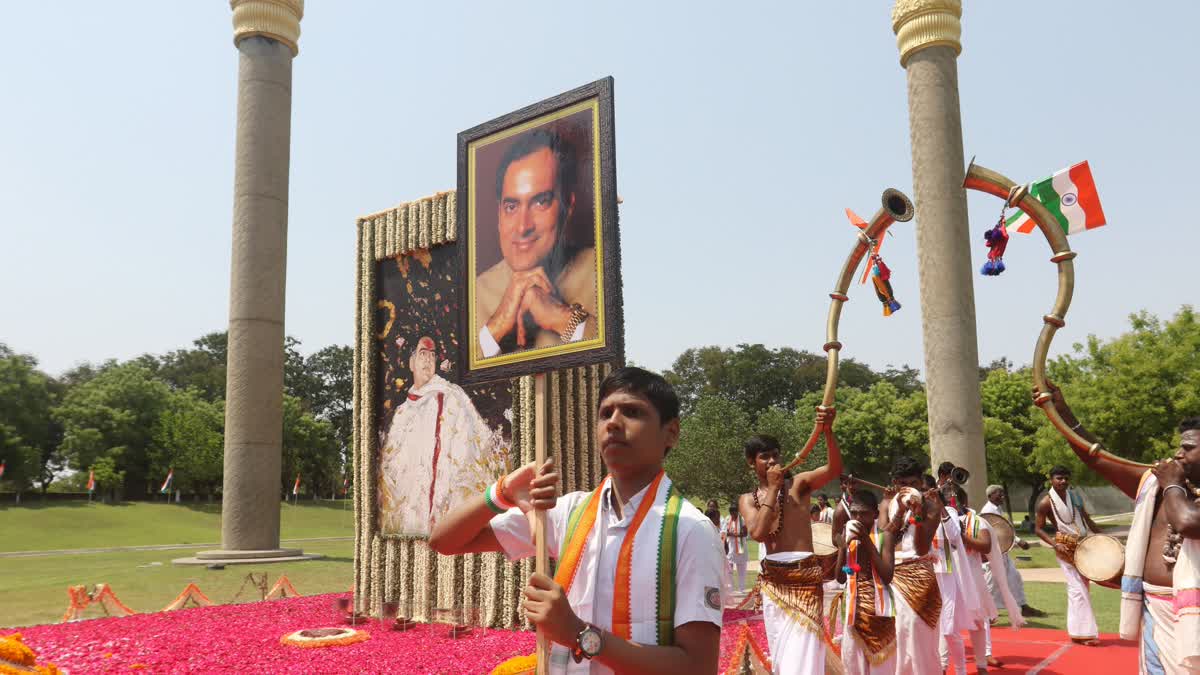Hyderabad:The National Anti-Terrorism Day is observed every year on May 21, the death anniversary of former Prime Minister Rajiv Gandhi. He was assassinated on 21 May 1991. The day highlights the significance of eradicating terrorism and promoting peace and harmony.
Anti-Terrorism Day History:
In India, May 21 is observed as National Anti-Terrorism Day as it is on this day that former Prime Minister Rajiv Gandhi was assassinated in 1991 in a brutal act of terror that shook the world. Rajiv Gandhi was assassinated by a suicide bomber belonging to the Liberation Tigers of Tamil Eelam (LTTE) at Sriperumbudur, 50 km from Chennai, at 10.20 PM at an election rally. The suicide bomber had triggered a belt bomb that killed Rajiv Gandhi and 16 others.
According to the judgment of the Supreme Court of India, the assassination of Rajiv Gandhi has not been considered a terrorist act under the TADA Act as the pieces of evidence and the assassinator's plan suggested that they did not desire the death of any Indian citizens other than Rajiv Gandhi.
Where are Rajiv Assassination Case Convicts Now
On April 3, 2024, Murugan, Robert Payas, and Jayakumar - who had been convicted for their role in the assassination left for Colombo. They were among the six freed in November 2022 by the Apex Court. The court said its orders were based on the fact that the convicts showed "satisfactory behaviour" while in jail and on the recommendation from the Tamil Nadu government to release them.
Murugan is married to Nalini, an Indian and co-convict in the Rajiv case, who was also released in 2022. Santhan, another Sri Lankan national and released convict, died in a Chennai hospital, battling a liver condition. Perarivalan aka Arivu, an Indian, is the first of the six to be released in May 2022.
A war against terrorism
Terrorism is not just a word, this is a threat to humanity and world peace. India has been tackling the menace of terrorism ever since its independence. The history of terrorism in India can be traced to the Khalistan movement in Punjab in the 1980s. After the independence of India, the demand for a separate state by Sikhs led to the formation of Punjab. It is further aggravated when terrorists demanded for separate 'Khalistan'. The Khalistan issue resulted in Operation Blue Star in Amritsar, followed by the assassination of Prime Minister Indira Gandhi, a series of political murders, and the killing of thousands of Sikhs and other people in riots.
After Punjab, terrorism started in the late eighties in the Kashmir region by anti-India separatist elements supported by Pakistan. The terror groups operated mainly from Pakistan-occupied Kashmir (PoK). The terrorism in Kashmir was created by groups like LeT, JeM, Hizbul Mujahideen etc. LeT is involved in the Indian Parliament attack of 2001 and 2008 Mumbai attacks. Terrorism has no religion. It has become an international problem. Now almost all the countries are trying to tackle the menace of terrorism.
Major Terrorist Attack in India:
Pulwama Attack 2019
Uri Attack 2016
26/11 Mumbai Attack 2008
Jaipur Blasts in 2008 2008
Mumbai Train Bombings Attack 2006
Delhi Bomb blasts 2005
2001-Parliament Attack 2001
Bombay (now Mumbai) blasts 1993
Global Terrorism Index Rankings in 2024
